Are Michelin tires better than Yokohama?
You’ve narrowed your choice of a new set of tires down to two brands, but you’re not sure which is better. Are Michelin tires better than Yokohama?
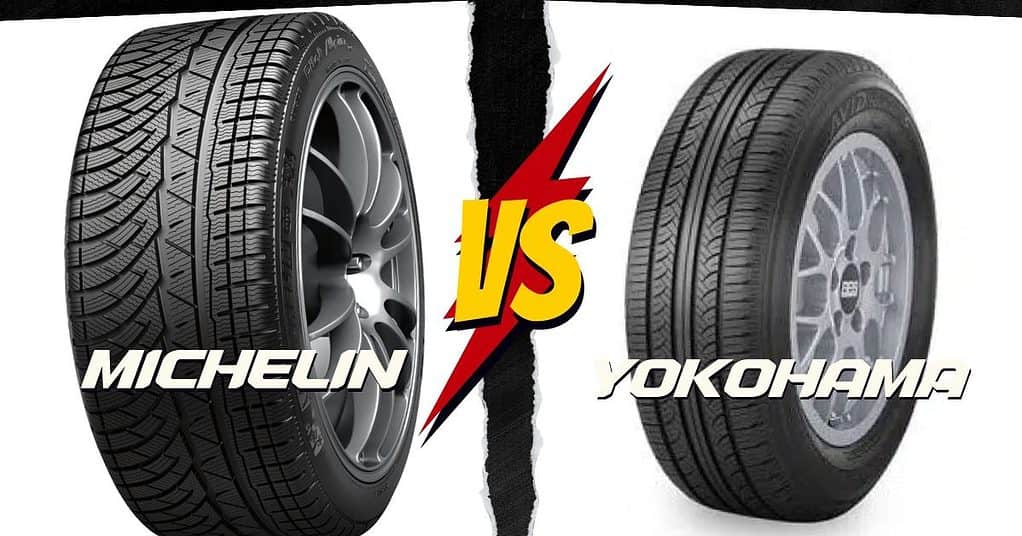
Overall, both Michelin and Yokohama make excellent tires but based on independent consumer reviews, Michelin is a better tire. While the differences are minimal, Yokohama tires are less expensive than Michelin’s, which makes them a good choice for budget-minded consumers.
Sooner or later, every car owner is faced with deciding what kind of tires to put on their vehicle. Some of us are willing to let the tire center convince us about what is best, others rely on the advice of dear old Dad, and some of us could care less.
Tires are essential to a car’s performance, so if you have never thought about what kind of rubber you are putting on your car, you should. This article will discuss two of the most prominent brands in the market, Michelin and Yokohama, to see if we can help you search for the perfect tire (if there is such a thing).
Who are Michelin and Yokohama?
When you arrive at the local service center, the first thing you realize is that many tire brands are vying for your hard-earned dollars.
You probably heard of the likes of Michelin, Goodyear, and BF Goodrich, but others like Kuhmo, Falken, and Yokohama are less well-known. Don’t let your lack of knowledge fool you. Some of these lesser-known companies produce quality tires you can trust, which is why we are doing some research for you.
Michelin
Let’s start with the big boy on the block – Michelin. This French multinational started in the late 1800s when it made the first pneumatic tire for bicycles. Since those early days, Michelin has grown into the second-largest tire manufacturer in the world, generating over 27 billion dollars annually. The company operates over 51 facilities in 18 countries and employs 125,000 workers.
In addition to the Michelin brand, this company also produces the Uni-Royal, Kleber, and Camso (an off-road construction tire company), among others. The company doesn’t just make car tires. It also produces tires for trailers, heavy equipment, aircraft, bicycles, motorcycles, and even the space shuttle.
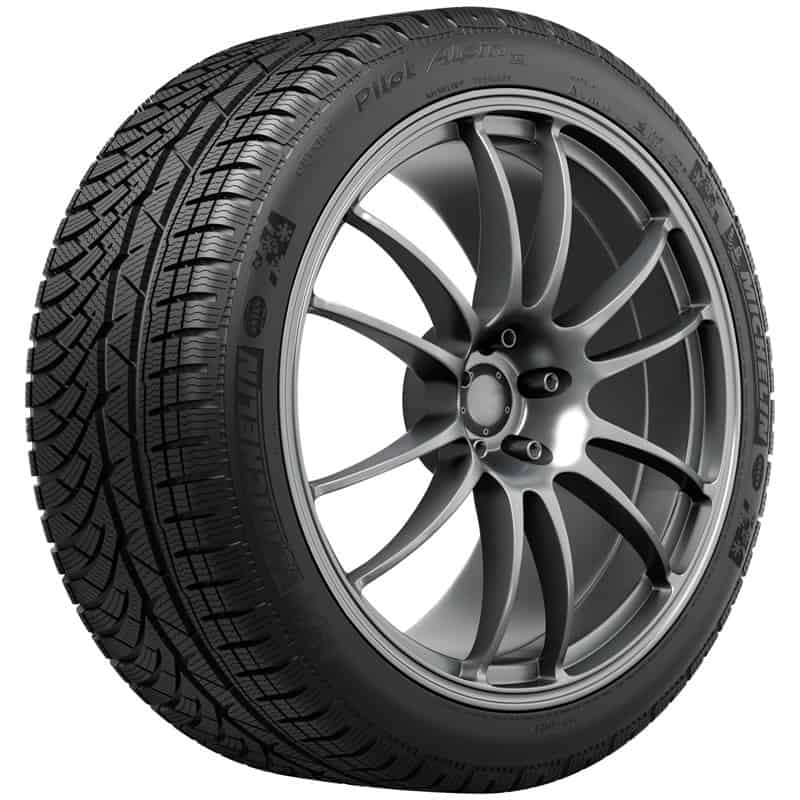
Since Michelin is headquartered in the Rhone-Alps region of France, it is also interested in promoting exquisite international cuisine and travel. You might have heard of restaurants with Michelin stars (one of the most coveted prizes in the hospitality industry). Michelin creates travel guides, maps, and other tourist information aids designed to help promote the brand’s inclusivity.
Yokohama
This Tokyo-based rubber company has been in business since 1917 as a joint venture between BF Goodrich and Yokohama Cable Company. The company has grown in stature to become the eighth-largest producer of tires in the world.
They make all kinds of tires but are best known for the Aspec A300, one of the most popular in the Philippines and other Far Eastern markets. They also make several types of all-season touring tires, like the Avid Touring S, which has proved to be one of the company’s best-selling tires today.
The company started operations in the United States in 1969 and has manufacturing plants in Salem, Virginia, and West Point, Mississippi. They employ about 27,000 and have annual sales of 4.1 billion dollars.
Various brand names like Avid, Advan, Geolander, Parada, Iceguard, and BluEarth know Yokohama tires as their parent company. Currently, Yokohama makes tires for several auto manufacturers; Nissan, Toyota, Kia, Lexus, BMW, Mercedes, and Porsche.
Yokohama tires are known for quality performance, longevity, and excellent ride. Their tires are especially good when traction is paramount in winter or wet road conditions. The tires are less expensive than Michelin’s, which makes them a good choice for budget-minded consumers.
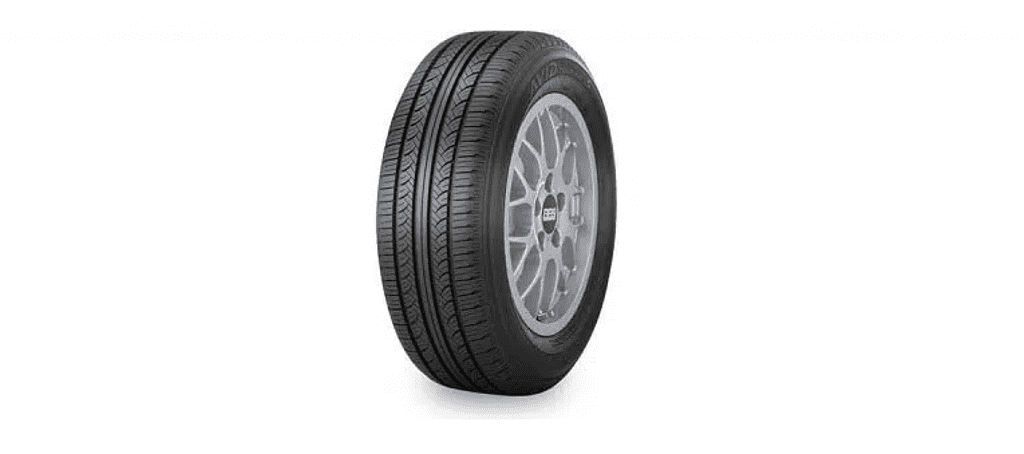
Which Tire Company is Better – Michelin or Yokohama?
Based on independent review sites like Consumer Reports or NHTSA (National Highway Traffic Safety Administration), Michelin produces a slightly better tire than Yokohama. The scientists at the NHTSA prefer Michelin’s construction, treadwear, and performance over Yokohama’s tires (although not in every case). Both companies produce tires that, in many cases, lasted at least four times longer than the control tire that NHTSA used.
The folks at Consumer Reports favor the Michelin tires based on the 11 criteria they use. Almost every Michelin tire tested scored a CR “recommended” status, while Yokohama’s tires did not.
Head to Head Analysis:
This comparison table shows the differences between Michelin and Yokohama tires in various categories. According to the table, Michelin tires are the winners in the Compound and Tread Design categories, while the Tread Depth category is a tie between both brands.
On the other hand, Yokohama tires come out ahead in the Ride and Performance, Cost, Sustainability and Technology categories. Finally, when it comes to Warranty, Michelin is the winner. The table provides a quick and easy way for readers to see the strengths and weaknesses of both brands in different areas and make an informed decision about which brand might be best for their needs.
Comparison Table
| Feature | Michelin | Yokohama |
|---|---|---|
| Compound | Winner | – |
| Tread Depth | Tie | Tie |
| Tread Design | Winner | – |
| Ride and Performance | – | Winner |
| Cost | – | Winner |
| Sustainability and Technology | – | Winner |
| Warranty | Winner | – |
While this table shows the overall summary results of our research, it doesn’t give the background for why each company was deemed to be the winner.
Keep reading and we will take a deeper dive into each of the categories.
The Compound
Every tire begins with rubber and synthetic polymers. Michelin tires use a more complex initial rubber compound than most manufacturers, leading to more effective wear and tear and longevity in daily use. Michelin’s website indicates that over 200 ingredients go into their tires, from elastomers, silica, oils, and other chemicals.
Yokohama has staked its reputation on what they call a Tri-Plex Compound. While the exact ingredients in this formula are closely guarded, the company has been transparent enough to reveal that it has been substituting some petroleum oils with more sustainable orange oil (you read that right). The oil is derived from orange skins and provides better elasticity, a quieter ride, and improved handling.
And the winner is – MICHELIN – While the giant loses points for not being more sustainable, they have been on the cutting edge of chemical compositions of tires for a long, long time.
Tread Depth
One of the most critical concerns for tires is the depth and viability of the tread. Michelin tires have a standard 9 mm tread, while Yokohama has 10 mm. This difference might not seem like much, but it can significantly impact the tire’s longevity. Since a softer rubber compound tends to wear more quickly, the extra tread on a Yokohama tire means that their time has more life than a standard all-season tire.
And the winner is – TIE. (The more complex compound on the Michelin will wear down less quickly, but since there is less tread on it than the Yokohama, the longevity of the tires should be about equal).
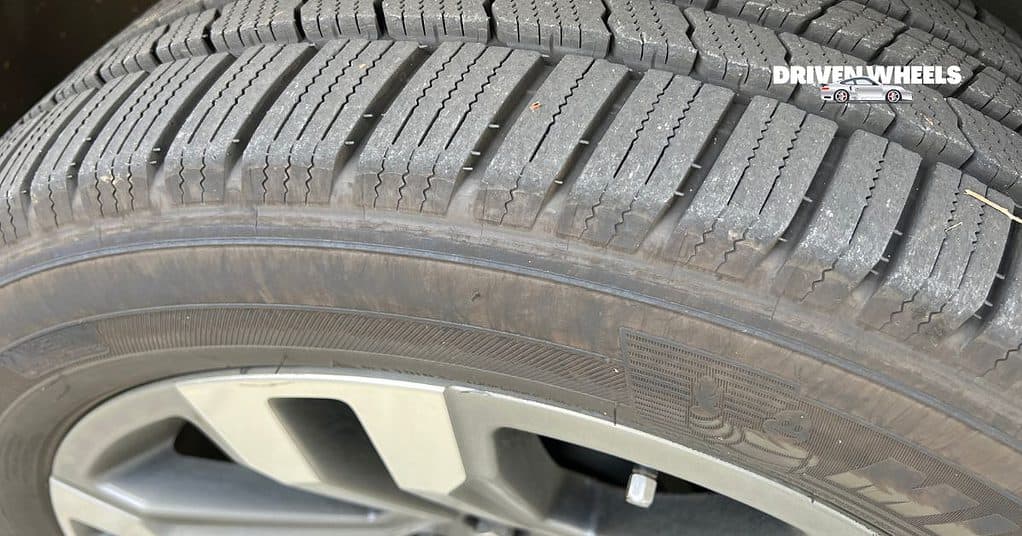
Tread Design
Tread depth is only one of the many things going on with your tire. It also very important how the tire channels water and the kind of traction it provides. A tread with no grooves would be prone to hydroplaning on wet surfaces, and tires with too many sipes or channels would have minimal traction for accelerating or stopping.
While a lot of science (and we do mean a lot) goes into creating the correct patterns, both companies have innovative tread designs built to perform well on various road conditions. Yokohama has probably got the edge here in their development of winter tires, but Michelin tires have higher marks from the non-profit reporting agencies.
And the winner is – MICHELIN (by a nose) – in studies by people who are not employed by the industry, Michelin tires scored better in traction, gaining top marks (Yokohama has plenty of these as well, but not as high).
Ride and Performance
The real test of a tire is how it feels and rides while you are driving on it. Yokohama uses a softer compound for its tires, which translates to a quieter and lighter feel when traveling down the road. Their flexible compound tends to increase the surface contact of the tire to the road, especially during cornering.
Michelin tires tend to be “louder” than other competitors due to their more complex compound. Even though road noise isn’t just based on a tire (inflation and road surfaces have a lot to do with the vibrations a driver feels), Most review sites indicate that Yokohama makes a tire that rides more smoothly and with less noise than Michelin’s tires. It should be noted that Michelin is aware of this primary complaint and has recently introduced a 20% reduction in internal tire noise through its Acoustic Technology program.
So here’s the rub. You can buy a tire that rides a bit rougher but will likely last longer or a smoother riding tire that you might have to replace more often.
And the winner is YOKOHAMA (This is a matter of personal preference, but my posterior will always prefer a softer ride with fewer road vibrations)
Expert Tip
If you are not sure which tires to buy for a truck or SUV, and if your vehicle is your daily driver, then I strongly suggest you go with the Michelin Defender LTX M/S.
As long as 95% or more of your driving is going to be on the road around town or on the highway, these will be excellent tires.
I have these tires on my daughter’s Lexus GX 460, my wife’s GMC Yukon, my Father’s Toyota Sequoia, my Mother’s Lexus RX350, and my father-in-law’s Mercedes ML350. Needless to say, I am a big fan of this tire for daily driver status.
–Kern Campbell
Cost
There is a clear winner here if you are the person who needs to watch their pennies. Yokohama has made premium tires for lots of luxury cars over the years. Still, their bread and butter is producing an affordable, all-purpose tire for the average consumer to purchase. They know their lane, and they do a heck of a good job filling it.
Michelin caters to a more affluent crowd. Over the years, they have made premium tires and charged premium prices. You should expect to pay anywhere from $45 to $100 more for the Michelin brand name over Yokohama. For example, the price for an Advan Sport is around $130, while the price for a Michelin Pilot Sport will run you around $185.
And the winner is YOKOHAMA (It isn’t even close. I never want to spend more for a tire than I have to).
Sustainability and Technology
If you have ever lived near a dump when a stack of tires caught fire, the black smoke that billows everywhere isn’t fun to breathe or smell. While most consumers could care less about whether a tire is sustainable, there is coming a day when they will want to rethink that stance. The auto industry is in a sort of “green revolution” where the pressure from climate accords and consumers is driving the tsunami of sustainability and zero carbon emissions.
Michelin is working on new technologies, and they have pledged to have a 100% sustainable tire by 2050, but they are losing the race to their competitors in this area. (Goodyear announced a 90% recycled tire in January of 2023, selling it with 70% sustainable ingredients this year).
Yokohama is using recycled rubber from old tires and natural products (like orange oil) to fashion a more environmentally friendly tire. I love that Yokohama has a definite plan while Michelin is kicking the can down the road for a while.
And the winner is YOKOHAMA (I will always go with a company that is looking out for the kind of world my grandkids will have to live with).
Warranty
Michelin is the clear winner here, even though Yokohama’s warranty is pretty standard. The Tokyo-based company offers a 60-month prorated replacement if the tread is above 2/32nd. However, there are many limitations, and road hazard damage is not covered under the fine warranty print.
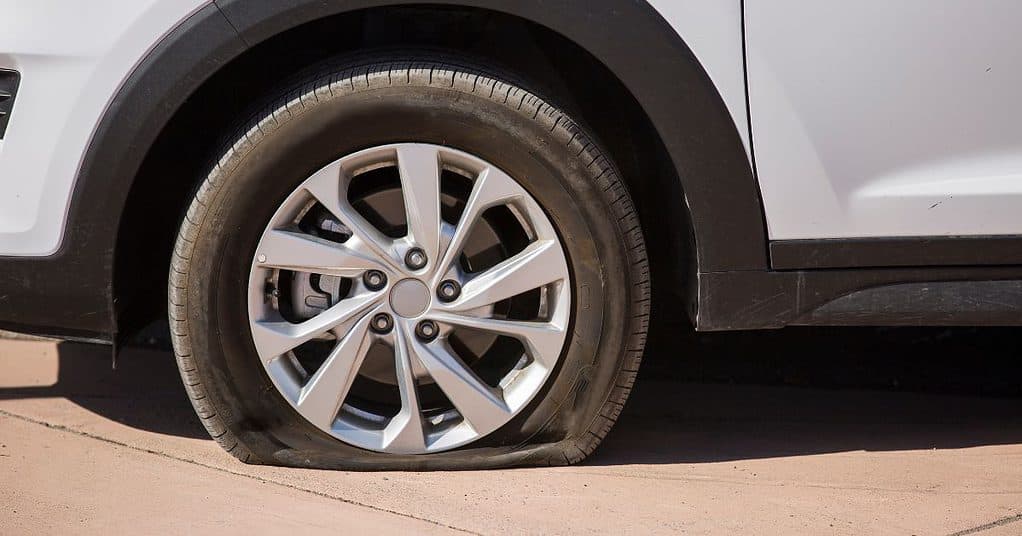
Michelin offers a 6-year tire warranty that includes roadside assistance for the first couple of years (assuming that the owner has rotated and maintained the tires correctly). While some owners have roadside assistance from their car’s manufacturer, it’s a comfort to know that my tire company cares about me, too).
And the winner is MICHELIN (The roadside assistance factor pushes them over the edge).
Related Tire Comparisons:
If you want to read more tire comparisons, here are just a few popular articles I suggest you check out next!
Key Takeaways
- Michelin produces a more consistent tire based on Consumer Reports and NHTSA.
- Michelin tires are more expensive than Yokohama.
- Yokohama tires are made from a softer compound producing a quieter ride.
- Tires will need to be more sustainable in the future.
